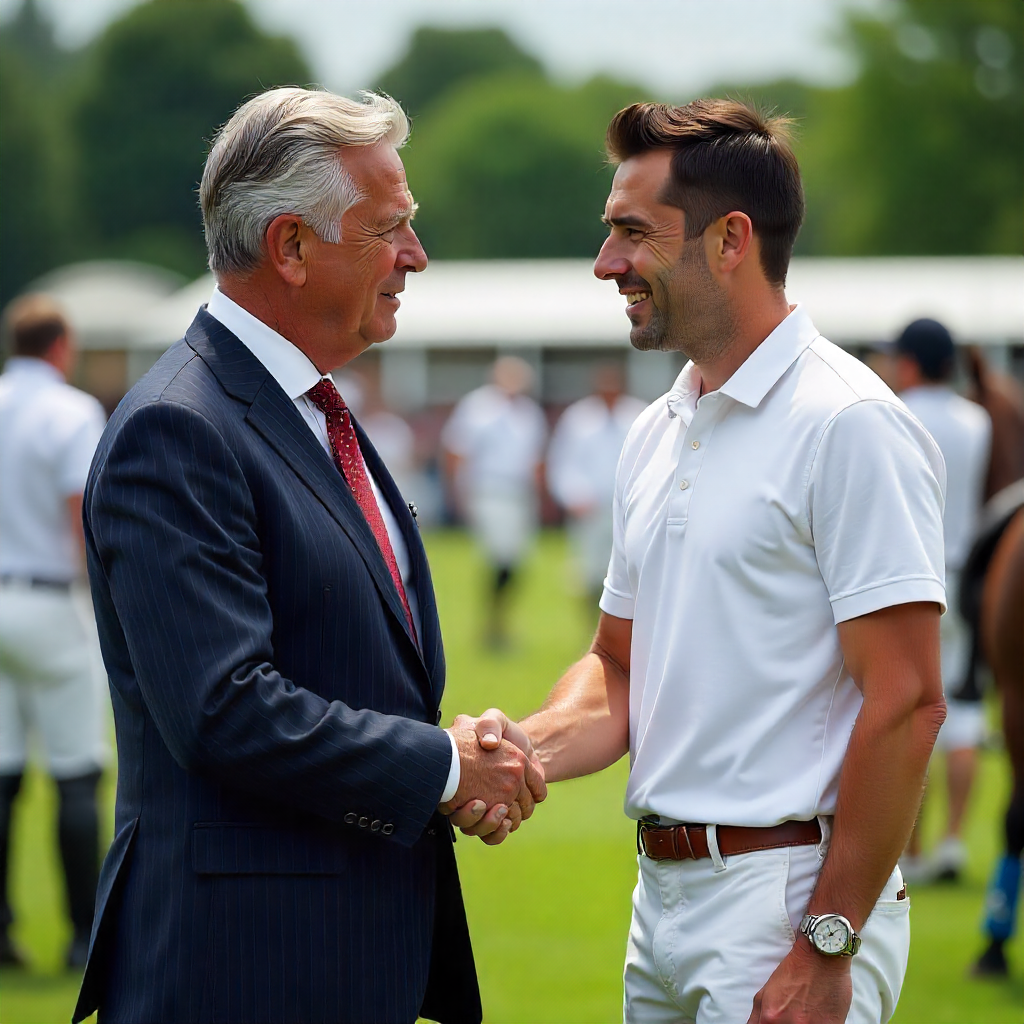In the world of sports, few can claim the status of being both a thrilling competition and a symbol of diplomacy quite like polo. Known for its speed, skill, and aristocratic roots, polo has become an unexpected but powerful tool in global relations. While the game itself has a rich history, stretching back thousands of years, it’s in recent decades that it’s become increasingly associated with high-profile diplomatic events, fostering international dialogue, cooperation, and influence.
Polo’s Role in Diplomacy: More Than Just a Game
Polo is often considered a sport for royalty, elites, and dignitaries, which makes it a fitting backdrop for diplomatic engagements. The game’s historical roots are in Persia, and its subsequent spread to India, Britain, and beyond, has always placed it in the context of the powerful, the influential, and the socially privileged. But in today’s interconnected world, it’s not just the wealth or status of players that makes polo relevant to global diplomacy—it’s the environment it creates for dialogue.
At international polo matches, heads of state, business leaders, and influential figures gather to witness the thrilling competition. But beyond the action on the field, these gatherings offer a unique opportunity for informal discussions, the building of trust, and the fostering of cultural exchange. These settings encourage more candid conversations, away from the rigid structures of formal negotiations, and often lead to breakthroughs that might not happen in a boardroom or summit.

Polo as a Diplomatic Tool: Breaking the Ice
Polo’s appeal is universal, transcending cultural and geographic boundaries. This universal appeal has made it an effective tool for soft diplomacy. One of the most famous examples of polo being used as a diplomatic tool is the annual Polo Cup between the United States and Argentina. Hosted in Argentina, the match draws international figures and is often used to discuss trade relations, economic partnerships, and peace-building efforts. The laid-back atmosphere allows for collaboration and interaction in ways that high-stakes meetings might not.
Another powerful example is the polo matches between India and Pakistan, which have been employed to foster a sense of camaraderie and build bridges between two countries with a tumultuous relationship. Despite the complex political backdrop, the polo field offers a rare opportunity for leaders and influential figures from both nations to meet in a more neutral, non-confrontational environment, where the focus is on sport and cultural exchange.
Polo Events as Platforms for Networking and Cultural Diplomacy
Polo tournaments often take place in exclusive locations, which, aside from their sporting allure, are also ideal for networking. The prestigious settings, such as the Royal Windsor Polo Club in the UK or the Argentina Polo Day, draw business leaders, cultural ambassadors, and even celebrities. This gives diplomats and international figures a unique platform to discuss important bilateral or multilateral issues in an informal, yet impactful manner.
Beyond the sportsmanship, these events offer a window into cultural diplomacy. Polo events, especially those in countries where the sport has deep cultural significance, allow foreign dignitaries to better understand the host country’s history, values, and traditions. It’s an avenue for building mutual respect and understanding—something that’s hard to achieve in a traditional diplomatic meeting.
Polo and Global Philanthropy
Polo also plays a significant role in global philanthropy, with many prestigious polo events being used to raise funds for various causes. From education to healthcare, polo tournaments have been used as a platform for charity auctions, global awareness campaigns, and philanthropic initiatives. For example, the annual Veuve Clicquot Polo Classic not only promotes the sport but also brings together influential figures to support charitable causes around the world.
In this way, polo contributes to a global community that transcends borders, uniting people not just through sport but through shared efforts to tackle global challenges.
A New Era of Polo Diplomacy
As we move into an era of increasingly complex global relations, polo stands as a reminder that diplomacy doesn’t always have to be conducted in formal boardrooms or through complex treaties. The sport’s rich history, elegant atmosphere, and universal appeal offer a unique platform for fostering international relationships and facilitating global cooperation. Whether it’s fostering peace, building trade relations, or advancing global causes, polo is proving to be much more than just a sport—it’s a bridge for diplomacy.
By embracing polo as a tool for diplomacy, nations can tap into an effective and engaging way to strengthen their global connections, break down barriers, and work together towards a more cooperative world. In the world of international relations, it seems that sometimes, the best deals are struck on horseback.
